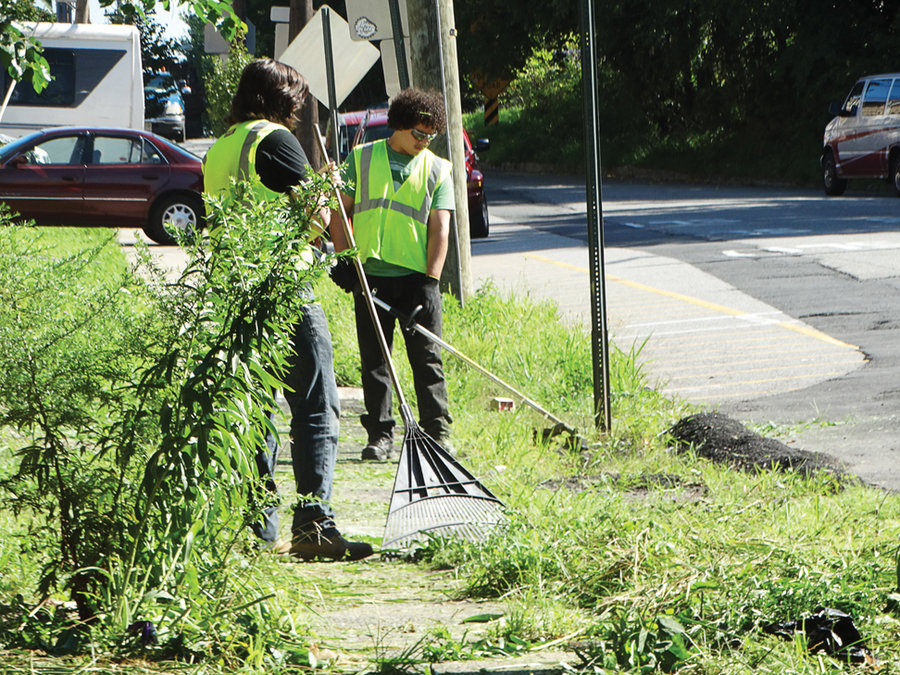This summer, from June 1 until Labor Day, 14 high school seniors and graduates teamed up with the Department of Public Works (DPW) to clean up various places areas in the township. DPW employees have taught the summer workers how to clean roadways and sidewalks, clear overgrown areas, remove graffiti, and unclog catch basins. They work 24 hours per week for $10 an hour, rain and shine.
“This is a chance for teens to earn a wage during the summer, and learn what a hard working job is for the future,” said Deputy Director of the Department of Public Works Frank Englese.
“They are young, hard working kids.” – Emil Fulda
____________
The paid position is part of a statewide litter removal program created in 1986 called NJ Clean Communities. The program incorporates the elements of clean up, enforcement, and education.
“Mayor Sacco and Frank Gargulio, the director of public works, feel that it’s better to keep the hires in the community and the youth,” Englese said.
“They are young, hard working kids,” Road Supervisor Emil Fulda said after cutting weeds with the youths for a day. “They come here and know they’re going to be put to work”
“If they don’t go on to college or to finish high school, we’re willing to train them during the summer and afterwards,” Englese said.
“It’s good to bring them in young to spend more time working, and one day they’ll have a good pension,” DPW Supervisor John Shaw said.
Learning good citizenship
Youths clean up public areas, cutting weeds or removing debris and litter on Liberty Avenue and Paterson Plank Road, near McKinley Elementary School. The group could also be seen cleaning debris from sidewalks for the street sweeper to catch on places like Tonnelle Avenue.
The DPW teaches them how to remove graffiti with steam cleaners or sand blasters. They learn to use cranes to remove debris from catch basins in order to prevent flooding. To clean litter from an area they remove the litter, and use equipment to remove brush and debris.
“They learn to be productive members of the community. If they weren’t in the clean up, they’d never know so much litter is thrown in these places,” Englese said. “They’re really integrated in the system, they want to participate.”
Englese said that summer workers have recommended spots that they’ve seen filled with litter.
“We compile a list of places to clean up throughout the year, and then we clean one spot all in one shot with the kids,” Englese said. “The process takes the entire summer,”
